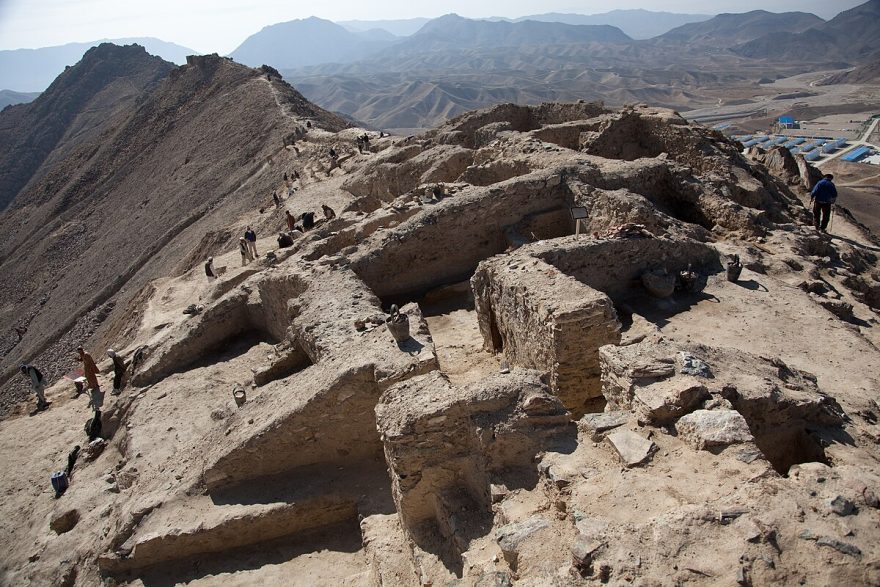This year, in February, China became the first country in the world to give diplomatic recognition to the Taliban that seized power in Afghanistan in August 2021. Even as the international community was taking note of it, Beijing’s motive behind deepening its engagement with the Taliban started unravelling like sloughing off skin by a snake in the summer.
China has been eyeing Afghanistan’s mineral deposits for years. Therefore, soon after Beijing gave diplomatic recognition to the Taliban, the first thing that the East Asian country did was to execute its projects related to mines and minerals in Afghanistan.
In July, China’s state-backed Metallurgical Group Corp (MCC) laid the foundation of a copper mine plant in Logar province of Afghanistan. The Metallurgical Group Corp was awarded the contract in 2007 but the Chinese company made no progress since then.
Hence, when the Chinese company decided to set up the copper mine plant, residents of Kabul and Logar province saw it as a recipe for disaster instead of welcoming the upcoming copper mine plant. They feared that development without proper management would prove to be calamitous for the poverty-ridden country.
While mining would cause severe pollution, the large amount of water that will be required to run the project is expected to cause a huge problem for the inhabitants as the region is arid with water being scarce there, Nikkei Asia, quoting experts, said.
The Metallurgical Group Corp (MCC) is executing the project in MesAynak area of Logar province which lies 30 km away from Kabul. MesAynak is considered Afghanistan’s ‘El Dorado,’ containing the country’s largest untapped copper deposits, with an estimated 4.4 billion tons of copper ore.
It is estimated that the MesAynak site would yield 2.5 million tons of copper per year and as such, can help Kabul in earning a revenue of $300 million to $400 million. But all this at the huge cost–in terms of environmental degradation and unmitigated loss of scarce water. If experts are to be believed processing just one ton of copper leads to generating 200 tons of waste.
It means the copper mining plant can severely pollute earth, water, and air– affecting the life of millions of people living in Kabul and Logar province. As per media reports, people in this area of Afghanistan rely on groundwater and if this waste is not properly handled, it can eventually contaminate the Logar River, impacting the health of people of the country.
China’s bad reputation for waste management and environmental abuses adds grist to people’s fear in Afghanistan. Chinese companies involved in the mining sector in Africa and other parts of the world have poor records of maintaining quality environmental safeguards.
In 2020, four Chinese companies engaged in gold mining in the Central African Republic (CAR) were forced to leave the African country after they were found to be involved in polluting the Ouham River, a source of food and water for the local community. The river water was found to have high-level presence of mercury.
In June 2022, civil society groups in Cameroon raised an alarm over the pollution of the Djiengou River by two Chinese gold mining companies: Meng Cheng Mining and Zinquo Mining. These Chinese companies were accused of contaminating the Djiengou River, which was found to have dangerously high levels of mercury and cyanide, Mongabay, a US-based news portal that reports on environmental-related issues, said.
Even in Indonesia, China’s neighbour in Southeast Asia, companies from the East Asian nation have been accused of causing huge environmental damage. A report from the US Geological Survey said that Indonesia is known for proven reserves of 21 million metric tons of nickel, a key component for lithium-ion batteries.
As per the London-based Business & Human Rights Resource Centre (BHRRC), Chinese companies involved in nickel production in Indonesia have caused air pollution, water pollution, soil contamination, flood, deforestation, and biodiversity loss, as well as loss of livelihood in the Southeast Asian country.
Given such a pathetic display of disregard by China-owned mining companies for the environment and lack of technical expertise by the Taliban government, worries among ordinary people of Afghanistan over the looming impact of the copper mining by the Chinese company on public health and environment have intensified. More so in the background of the fact that the Chinese mining company has, as per Nikkei Asia, reneged on several elements of the contractual agreement with Afghanistan.
For instance, the Chinese company has refused to lay a railway line from Bamiyan in Afghanistan to Khyber Pass in Pakistan despite it being the specific issue of the contractual agreement. In fact, for the Taliban government, nothing is as important as business and investment. Analysts say it will not pressure the Chinese company to go by rules and contractual agreements as long as it brings money and investment to Afghanistan.
But then, it is not just the environment that is going to be threatened, the Chinese company’s MesAynak project is about to severely impact a Buddhist complex which comprises over 20 ruins, including temples and more than 1,000 statues. Beneath the copper deposits, signs of ancient Bronze Age settlements have been found in MesAynak, South China Morning Post quoting Afghanistan’s Mines and Petroleum Ministry said.
Experts maintain that any mishandling of the mining project by the Chinese company has the potential to bring inevitable disaster to the region. Despite this, ordinary Afghans cannot lodge complaints against China or prevent their country from facing negative consequences because all that the Taliban government wants at present is revenue and the flow of foreign direct investment in the country.

